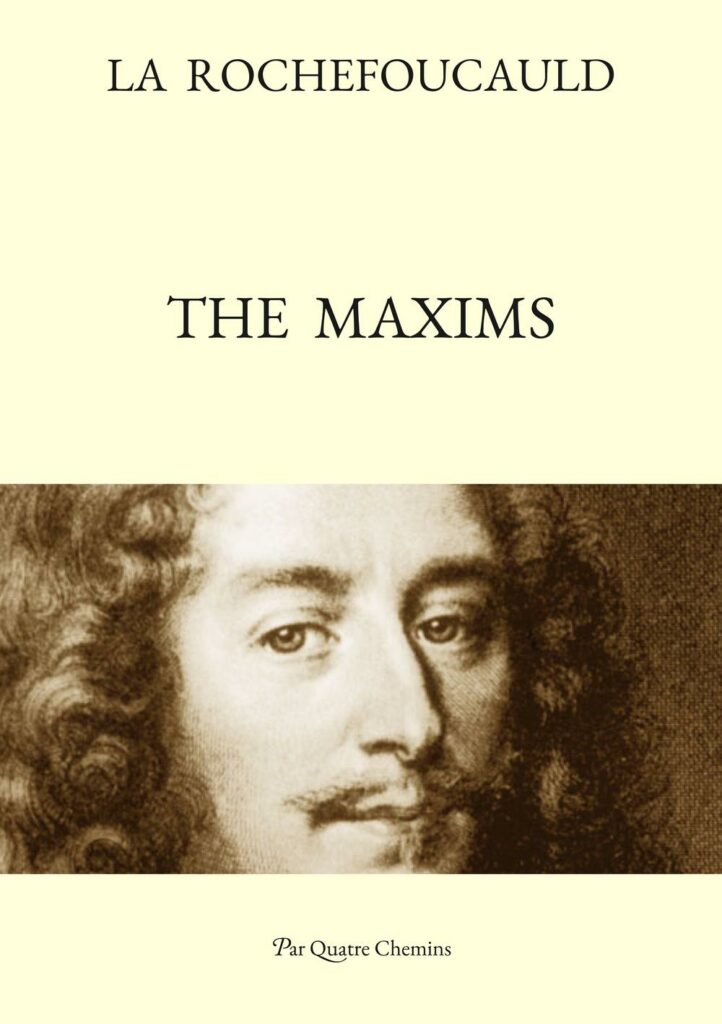François de La Rochefoucauld

The constancy of the wise is only the talent of concealing the agitation of their hearts.
*
Jealousy feeds on doubts, and becomes a fury, or comes to an end, as soon as it passes from doubt to certainty.
*
Those who apply themselves too closely to little things often become incapable of great things.
*
We are never so happy or so unhappy as we suppose.
*
There are few people who would not be ashamed of having loved when they love no longer.
*
The extreme delight we take in talking of ourselves should warn us that it is not shared by those who listen.
La Rochefoucauld, The Maxims
Of all the French epigrammatic writers, La Rochefoucauld (1613-1680) is at once the most widely known and the most distinguished. Voltaire said: “One of the works that most largely contributed to form the taste of the [French] nation, and to diffuse a spirit of justice and precision, is the collection of maxims by François, duc de La Rochefoucauld; though there is scarcely more than one truth running through the book—that ‘self-love is the motive of everything’—yet, this thought is presented under so many varied aspects that it is nearly always striking.” And Lord Chesterfield, in his letters to his son: “Till you come to know mankind by your own experience, I know no thing nor no man that can in the meantime bring you so well acquainted with them as La Rochefoucauld: his little book of Maxims, which I would advise you to look into, for some moments at least, every day of your life, is, I fear, too like and too exact a picture of human nature. I own it seems to degrade it, but yet my experience does not convince me that it degrades it unjustly.”
The Maxims were first published in 1665, under the title Reflections or sentences and moral maxims; and the edition of 1678, the fifth, from which the text has been used for the present translation, was the last revised by the author and published in his lifetime (with maxims numbered 1 to 504). Maxims which appeared in previous editions and were suppressed by La Rochefoucauld can be found in the second part, entitled “Maxims withdrawn by the author”, here numbered 505 to 583.
The French original of this bilingual edition was reviewed by Philippe Renaud. The English translation, originally by John William Willis-Bund and James Hain Friswell, has been thoroughly revised by Rebecca Hazell and Philippe Renaud.

ISBN 978-2-9574048-2-7 (paperback)
March 2022
155 x 220 mm
136 pages
ISBN 978-2-9574048-3-4 (eBook)
ASIN B09SP4FH1C (Kindle)
